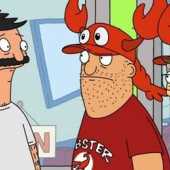The 2012 Republican Presidential Field So Far
The 2012 Republican Presidential Field So Far
From a wider perspective, these changes are telling in a number of ways. Though Trump has never been considered a serious candidate from a policy or civil service experience perspective, he has justified his decision not to run on the grounds that “business is [his] greatest passion.” Presumably, business includes his lucrative NBC reality show, The Apprentice. Huckabee, on the other hand, has gubernatorial experience, a strong identification with the Christian right, and performed quite well in the 2008 primaries, so his decision represents something more of a loss for the party. But what are his real reasons for choosing not to run? Although it’s likely not the only reason, running for president would mean giving up his profitable role as a FOX News talk show host.
This last point draws attention to the last major sensational media figure (now that Trump has stepped down) in the list of potential Republican candidates—Sarah Palin. Like Trump and Huckabee, she’s also built an extremely lucrative career as an author and paid contributor to FOX news. Like Trump, she’s also continued to garner loads of media attention for her outspoken disapproval of President Barack Obama as well as for her numerous on-air gaffes. While Trump’s bluster cannot be completely replaced, Palin brings experience as Alaska’s governor and as 2008 Vice Presidential candidate as well as her substantial popularity with the Tea Party movement—a pull that neither Gingrich nor Ron Paul can claim. The same question lingers, though—is Palin willing to give up her obvious ambitions as a media personality to once again serve the country she often publicly professes to love, or will the allure of celebrity prove more intense?
At the least, Gingrich’s announcement makes the field interesting in a way that 2008’s was not—his history in US politics is populated with major successes, especially when it comes to his ability to motivate and achieve victory with the Republican party as a whole—judging by recent Republican rhetoric, this organizational ability may prove a demonstrated skill that none of the other candidates can boast. While Ron Paul is extremely popular with his followers, his ability win the entire Republican party is dubious. It’s more likely he’ll remain a fringe character who’s lucky to use the primary as a chance to advance what little of his platform as he possibly can. Of the remaining field, Romney is likely to be seen as one of the strongest candidates—but the field really can’t be accurately described until Sarah Palin determines her intentions, as her decision will radically alter how the candidates are perceived.



